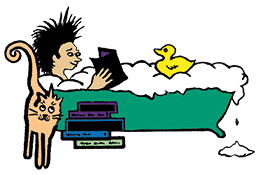|
|
Cognitive Processing Therapy For Ptsd: A Comprehensive Manual
Stock informationGeneral Fields
Special Fields
DescriptionThe culmination of more than 25 years of clinical work and research, this is the authoritative presentation of cognitive processing therapy (CPT) for posttraumatic stress disorder (PTSD). Written by the treatment's developers, the book includes session-by-session guidelines for implementation, complete with extensive sample dialogues and 40 reproducible client handouts. It explains the theoretical and empirical underpinnings of CPT and discusses how to adapt the approach for specific populations, such as combat veterans, sexual assault survivors, and culturally diverse clients. The large-size format facilitates photocopying and day-to-day use. Purchasers also get access to a Web page where they can download and print the reproducible materials. Reviews"A long-awaited resource for clinicians working with patients with PTSD. Experienced and new clinicians will find this book an unparalleled guide for delivering every step of CPT. This is one of the most detailed and practical PTSD treatment guides available."--Richard A. Bryant, PhD, Scientia Professor, School of Psychology, University of New South Wales, Australia "This indispensable book from three of the top experts in the world presents everything you could possibly want to know about CPT. Beginning with a strong theoretical chapter and moving deftly to a comprehensive review of published clinical trials, this very accessible work considers moderators of treatment, how to address comorbid conditions, patient preparation, and the CPT therapeutic process. The centerpiece of the book is the CPT manual, which offers superb guidance to any practitioner who wishes to utilize this powerful therapeutic approach."--Matthew J. Friedman MD, PhD, Senior Advisor, National Center for PTSD, U.S. Department of Veterans Affairs; Professor of Psychiatry and Pharmacology and Toxicology, Geisel School of Medicine at Dartmouth "An impressive trio of experts, Resick, Monson, and Chard have created a state-of-the-art manual for CPT, currently considered a critical skill for clinicians. CPT is one of the few treatments for PTSD that have been consistently empirically validated. This book offers the fundamentals to literally change the lives of trauma survivors. Containing step-by-step instruction, troubleshooting tips for common hurdles, and guidance for treating specific populations, this manual is essential equipment for mental health providers of all stripes."--Carrie H. Kennedy, PhD, ABPP, Medical Service Corps, U.S. Navy "Without question, this is the single best source on CPT. In addition to providing a treatment manual, the authors present a comprehensive theoretical overview and data supporting CPT's effectiveness. This book should be on the desk of any clinician who aims to deliver evidence-based treatment for PTSD."--Bret A. Moore, PsyD, ABPP, former military psychologist Author descriptionPatricia A. Resick, PhD, ABPP, is Professor of Psychiatry and Behavioral Sciences at Duke University. She originally developed cognitive processing therapy (CPT) in 1988 at the University of Missouri-St. Louis, where she founded the Center for Trauma Recovery and was an Endowed Professor. Dr. Resick has served as president of the International Society for Traumatic Stress Studies (ISTSS) and the Association for Behavioral and Cognitive Therapies (ABCT). She is a recipient of the Robert S. Laufer Memorial Award for Outstanding Scientific Achievement in the Field of PTSD from the ISTSS, the Leadership Award from the Association for Veterans Affairs Psychologist Leaders, the Outstanding Contributions by an Individual for Educational/Training Award from the ABCT, and the Lifetime Achievement Award from Division 56 (Trauma Psychology) of the American Psychological Association. Candice M. Monson, PhD, is Professor of Psychology at Ryerson University in Toronto, Ontario, Canada. A Fellow of both the American and Canadian Psychological Associations, she is a recipient of the Trauma Psychologist of the Year Award from the Canadian Psychological Association, the Outstanding Mentor Award from the International Society of Traumatic Stress Studies, and the Award for Excellence in Academic Training from the Canadian Council of Professional Psychology Programs. Dr. Monson is well known for her research on interpersonal factors in traumatization and the development, testing, and dissemination of treatments for PTSD, including cognitive processing therapy and cognitive-behavioral conjoint therapy for PTSD. Kathleen M. Chard, PhD, is Associate Chief of Staff for Research at the Cincinnati Veterans Affairs (VA) Medical Center and Professor of Psychiatry and Behavioral Neuroscience at the University of Cincinnati. As the VA Cognitive Processing Therapy (CPT) Implementation Director, Dr. Chard oversees the dissemination of CPT to VA clinicians across the United States. She is an associate editor of the Journal of Traumatic Stress and a board member of the International Society for Traumatic Stress Studies. Dr. Chard is a recipient of the Mark Wolcott Award for Clinical Excellence from the VA and the Heroes of Military Medicine Award from the United Service Organization. Known for her research on dissemination and clinical implementation of evidence-based treatments for civilians and veterans, she is the creator of the CPT for Sexual Abuse manual. Table of contentsI. Background on Posttraumatic Stress Disorder and Cognitive Processing Therapy 1. The Origins of Cognitive Processing Therapy 2. Research on CPT II. Setting the Stage Clinically 3. Treatment Considerations 4. Preparing to Deliver CPT III. CPT Manual 5. Overview of PTSD and CPT: Session 1 6. Finding Stuck Points: Sessions 2 and 3 7. Processing the Index Event: Sessions 4 and 5 8. Learning to Self-Challenge: Sessions 6 and 7 9. Trauma Themes-Safety, Trust, and Power/Control: Sessions 8-10 10. Esteem, Intimacy, and Facing the Future: Sessions 11-12 and Aftercare IV. Alternatives in Delivery and Special Considerations 11. Variations on CPT: CPT with Written Accounts, Variable-Length CPT, and CPT for Acute Stress Disorder 12. Group CPT and CPT for Sexual Abuse 13. Issues in Working with Different Trauma Types 14. Diversity and Cross-Cultural Adaptations References |

